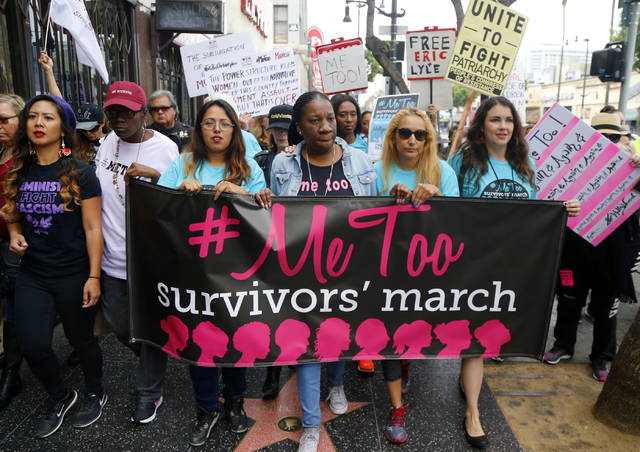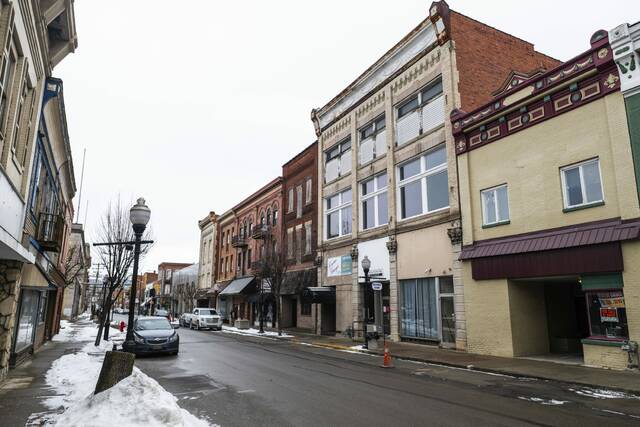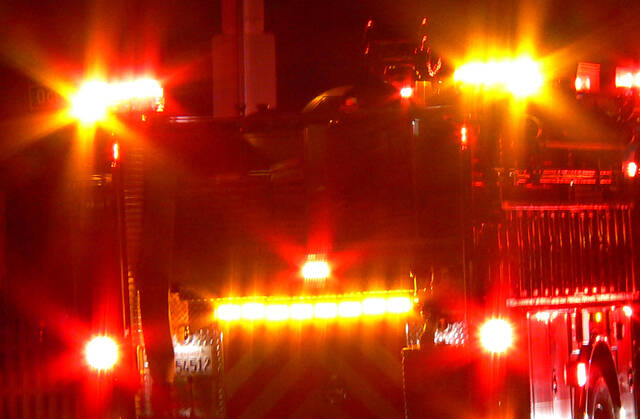Advocacy groups pushed forward Thursday, working to provide support and comfort to sexual violence survivors hurt and retraumatized by the Pennsylvania Supreme Court’s decision to overturn Bill Cosby’s sexual assault conviction.
“Today and yesterday, we’ve certainly seen an increase in our help line calls,” said Lisa Perry, executive director of Pittsburgh Action Against Rape. “People are looking for additional resources and (some) are just trying to wrap their brains around what just happened and that impacts their own trauma story.”
The court’s decision for many felt like another barrier stacked against women who come forward about sexual abuse.
“This particular moment, for many people who know how hard it was to get the conviction in the first place, deters them sometimes because they don’t know if it’s worth the emotional trauma that they go through,” Perry said.
Cosby was arrested in 2015 after a district attorney uncovered evidence to support the sexual assault charge against the former comedian. He was charged for the assault of a Temple University sports administrator in 2004. He was sentenced to three to 10 years in prison, and he was nearly three years in to that sentence in a Montgomery County prison.
The latest research estimates that about 37% of people who experience sexual violence will ultimately report the abuse, and for every 1,000 who do come forward, only about 25 of those cases will end in conviction and incarceration.
That in itself is discouraging to begin with, said Elizabeth Jeglic, a psychologist who specializes in sexual violence prevention at the John Jay College of Criminal Justice. She said many survivors cite the criminal justice process as a main barrier to coming forward.
“When we had people who did come forth and who shared their stories and all these women came forward – now it’s overturned on a legal technicality,” she said. “It feels very discouraging and retraumatizing. People feel hopeless and helpless. We were told to believe in the criminal justice system with (the #MeToo movement) and it didn’t work.”
The state’s highest court, in a split decision, ruled that District Attorney Kevin Steele, who made the decision to arrest Cosby in 2015, was obligated to stand by his predecessor’s promise not to charge Cosby, though there was no evidence that promise was ever put in writing.
In a joint statement, the Pennsylvania Coalition Against Rape and the National Sexual Violence Resource Center called the decision one of “immeasurable impact on survivors.”
“When people who sexually abuse others, like Cosby, are not held accountable or walk free, it directly or indirectly sends the message that sexual assault and its impact on victims is not taken seriously,” officials wrote.
The trial judge in Cosby’s case allowed five women who also accused Cosby of sexual abuse to testify, a move meant to establish a pattern of predatory behavior. Though only those five testified, more than 60 women eventually came forward and accused Cosby of violating them.
Their voices were not in vain, said Laurie MacDonald, executive director of the Center for Victims in Pittsburgh.
“Mr. Cosby’s accusers spawned the #MeToo movement,” she said, “which forever changed the temperature of acceptance and silence associated with sexual violence.”
She said that court proceedings can take disappointing turns, “each effort brings us more awareness and a step closer to ending the scourge of sexual violence.”
Jeglic said that is a reason keep coming forward.
“We have moved in the right direction – we can’t lose hope,” she said. “This is not just an isolated case. As we’ve seen with Cosby, once one person comes forward, it will be easier for others to come forward and share their stories, and the more stories we have, the stronger that case is against the individual.”
She suggested that survivors feeling traumatized or struggling with the news turn off the television and stay off of social media. She said to recognize those feelings are normal but also recognize the need for self-care. Most importantly, she said, reach out to support systems.
Perry said survivors must remember they aren’t alone.
“There are still people here in the community that will listen – will help guide them through the process of healing, whether it means getting counseling and support for themselves or seeking justice in the courtroom,” she said. “There are people and places in our community that care.”
• • •
All hotlines are available 24/7 and are confidential
Center for Victims: 1-866-644-2882
Pittsburgh Action Against Rape: 1-866-363-7273
Blackburn Center: 1-888-832-2272
National Sexual Assault Hotline: 1-800-656-4673 / online chat








